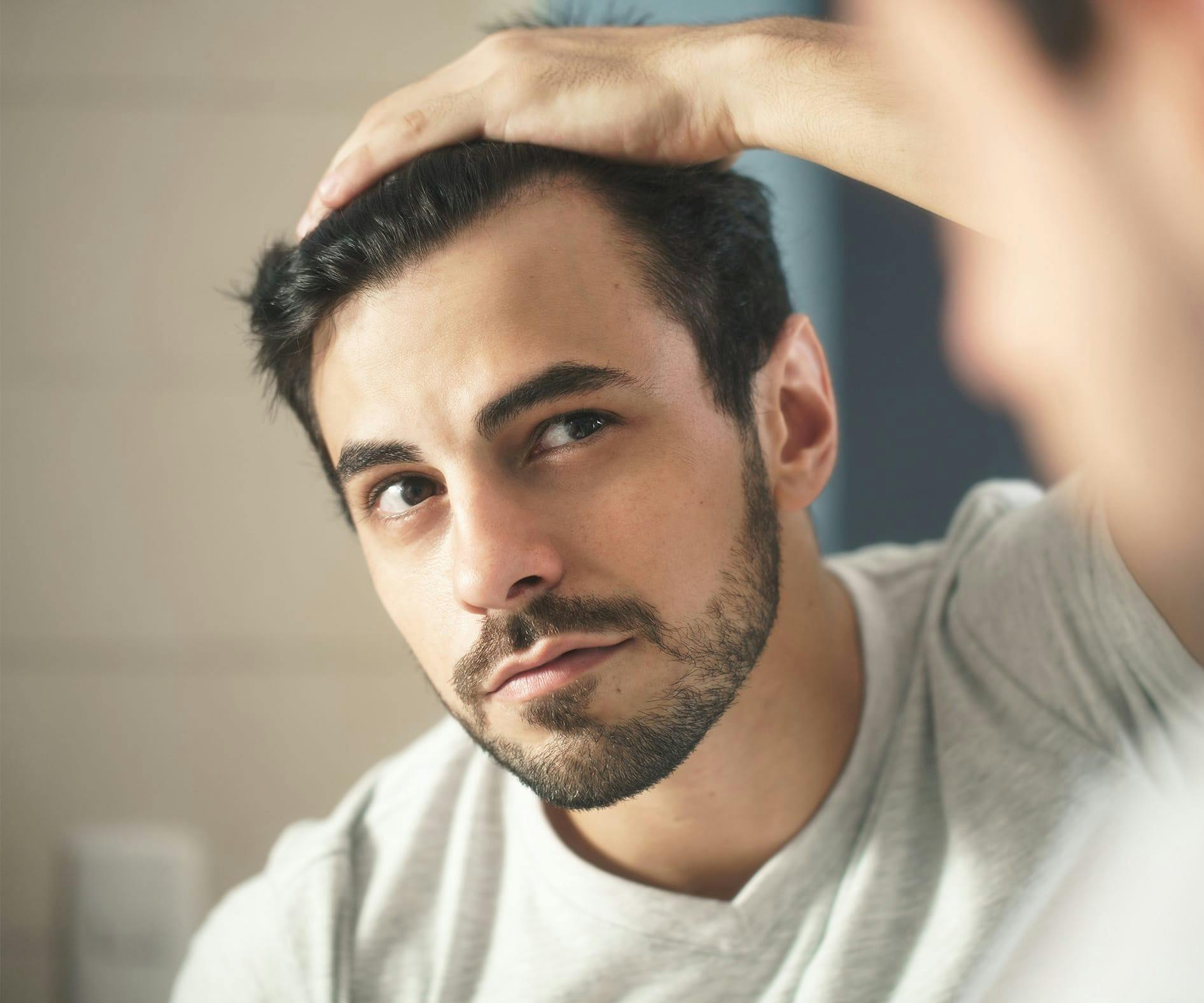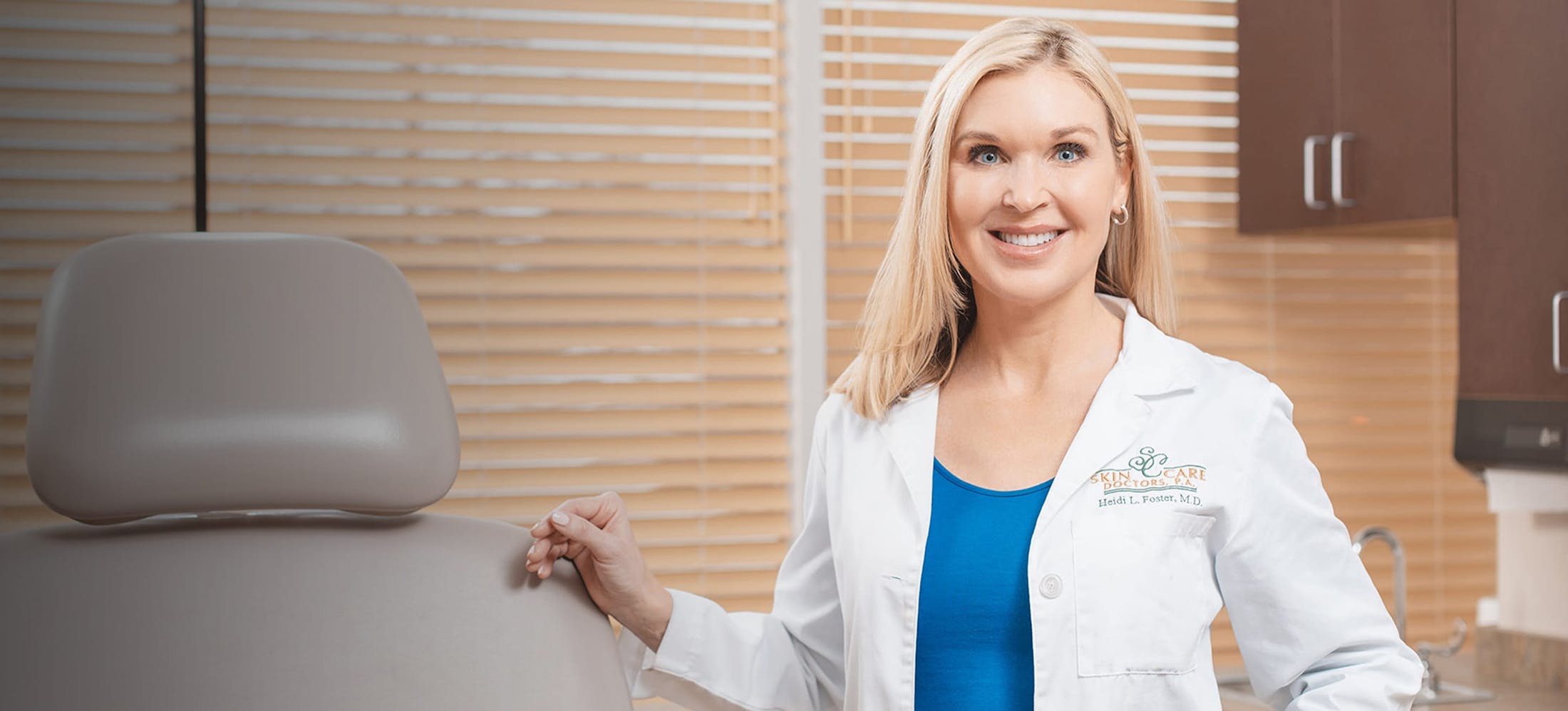If you feel like you’re losing more than an average amount of hair and it doesn’t seem to grow back, our providers at Skin Care Doctors can help you regain healthy hair.
Signs of Hair Loss
Hair loss affects both men and women and can emerge gradually or suddenly, temporarily or permanently, depending on the cause. It appears in a variety of patterns that can affect the scalp or body. Some of the common signs of hair loss include:
- Gradual thinning on the head, receding hairline at the forehead, or broadening of a hair part
- Patchy or circular bald spots in the eyebrows, scalp, or beard
- Sudden or temporary hair loosening that causes the hair strands to come out easily in large quantities, usually resulting from emotional or physical stress
- Temporary full-body hair loss caused by health conditions or medical treatments like chemotherapy




